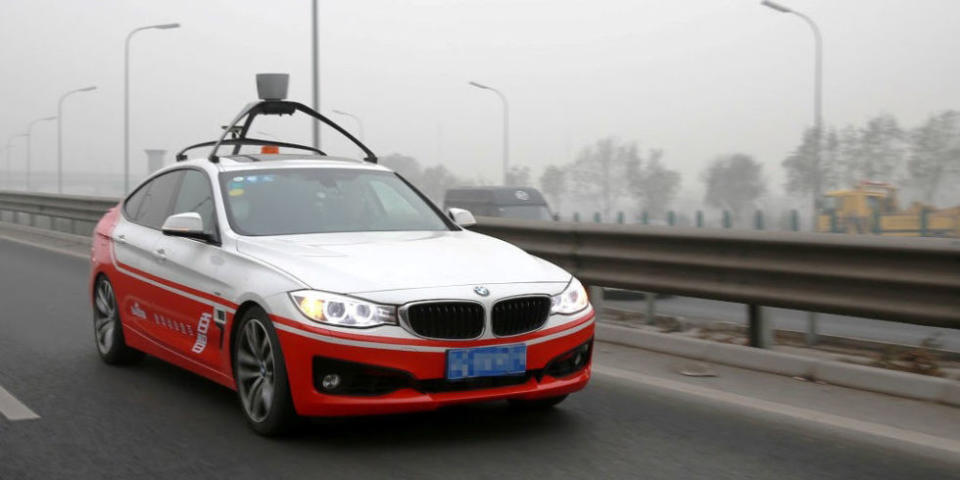Why 'China's Google' Is Setting Up an Autonomous-Car Team in Silicon Valley

Another day, another bit of autonomous-car news. In this case, what we have here is an announcement from Baidu, China's largest Internet-search company, that it will be establishing a Silicon Valley team to research and develop self-driving cars. And it plans to staff up fast.
According to the release, the team will be part of Baidu's Autonomous Driving Unit (ADU), and it will officially be known as ADU-US. The company says it plans to have more than 100 people on staff by the end of the year. Positions will cover all of the typical research and engineering roles involved with autonomous-car development: machine learning, computer vision, robotics, and software and hardware development.
The release also has some canned quotes and claims from Baidu's SVP about the inevitability of autonomous cars and how they'll change the world for the better and how much it cares about them, but you've probably read enough of those at this point. So I'm not going to include them. Rather, let's consider what this news means and put it into a bit of context.
It was really only a matter of time before Baidu ended up coming to the U.S.
It was really only a matter of time before Baidu ended up coming to the U.S. The company has said for years that it was dedicated to developing self-driving technology, and as recently as this past December, one of its modified BMW 3-Series sedans successfully navigated itself for18.6 miles through the free-for-all that is Beijing's traffic (I've driven there, trust me). Impressive to be sure, but if you're going to be a major player in this world, you still have to have a presence in Silicon Valley, the fertile crescent of autonomous-car research.
Moving to Silicon Valley isn't just about being seen with the cool kids, though. For Baidu, being near OEMs and suppliers with autonomous-car-focused research and technology centers is also strategically important. Whether the company will decide to manufacture its own cars one day we don't know, but it has also said that it wants make its technology commercially available as soon as 2018.

To hit that aggressive goal and continue an expansion in the market, Baidu will likely strike a variety of software and hardware partnerships with traditional carmakers and nontraditional transportation and technology companies across the globe. The company is already working with BMW, but possibilities and opportunities abound in our shifting transportation landscape, where mobility is the buzzword people can't stop dropping. I alluded to this and even specifically mentioned Baidu in my piece about the various paths Ford plans to take to survive the next 100 years.
To this end, setting up shop in the U.S. is also a way for Baidu to begin acquiring the high-definition mapping data it needs to power its cars beyond China. To cut down on complexity and variables, Baidu says its self-driving cars are developed incrementally and meant to work autonomously in very specific and small regions (think a bus route). So getting actual test cars on U.S. roads and collecting this information, even in limited scenarios, is imperative for the company.
For Silicon Valley locals, this news might not exactly be the most welcomed, as it surely means more curious-looking cars cautiously cruising the streets. On the bright side, maybe one day, in what might be the most apt physical representation of the nascent battle between two search giants to dominate an emerging field with so much promise, you'll get to see a Google driverless car and a self-driving Baidu BMW lined up at a stoplight. Now that would be a sight.

 Yahoo Autos
Yahoo Autos 